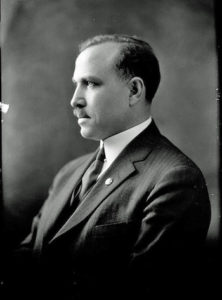
Perry Wilbon Howard Jr.
*Perry W. Howard II was born on this date in 1877. He was a Black attorney and politician. Perry Wilbon Howard II was born in Ebenezer, Mississippi.
He was mulatto, the first son of Sallie and Perry Wilbon Howard, who were enslaved. His parents bought their farmland and sent all seven of their sons to college. Howard graduated from Rust College and then pursued a degree in mathematics at Fisk University. He studied law at the Illinois College of Law. By 1905, Howard had passed the Mississippi Bar and was practicing law in the state capital of Jackson. He married in Jackson and had a son, Perry Wilbon Howard III.
Howard became active in Republican Party politics despite the constraints of Mississippi life that created barriers to voter suppression. Howard was a delegate to every Republican national convention from 1912 to 1960. Howard defeated white Republicans to be elected National Committeeman from Mississippi in 1924, becoming the first Black on the Republican National Committee in 25 years. Like other aspiring lawyers, Howard left Mississippi for better opportunities. He became a partner in the black law firm Howard, Hayes, and Davis (later renamed Cobb, Hayes, and Howard).
In Mississippi, under white supremacy and the one-party Democratic rule enforced by Black disenfranchisement, Republican party members could do little more than manage patronage and the assignment of federal appointed offices in Mississippi. In 1924, President Warren G. Harding appointed Howard as a special assistant to the U.S. Attorney General, becoming the highest-paid black in the government and Harding's first black appointment. Although Howard lived and worked in Washington, D.C., for the remainder of his life, he retained his office as Republican National Committeeman of Mississippi. He continued to control the state's patronage appointments. In other southern states, conservative whites began to take over the Republican Party in the mid-20th century, following the passage of national civil rights legislation.
In 1928, Howard was selected by Republicans in Kansas City to lead the Mississippi G.O.P. delegation. That same year, he was indicted by a federal grand jury in Mississippi on corruption charges related to the purported sale of offices in Mississippi. Before the first trial, Howard was suspended from his position in the Department of Justice under President Calvin Coolidge. He was twice acquitted on patronage corruption charges by all-white juries in Jackson and Meridian. Howard resigned from the government but returned to Washington, DC, where he was influential in the Republican Party.
Despite opposition within Mississippi and criticism from national Black leaders, Howard was pragmatic about dealing with local conditions. He held on to his position until 1960 as Republican National Committeeman from Mississippi while working and living in the capital. Howard managed to survive political swings and served as the Republican National Committeeman for almost his entire life, until his death. He died on February 1, 1961. Mary Booze of Mound Bayou, an all-Black community in Bolivar County in northwestern Mississippi, served alongside Howard as the national Republican committeewoman from 1924 to 1948. She was the first African American female to sit on the R.N.C.